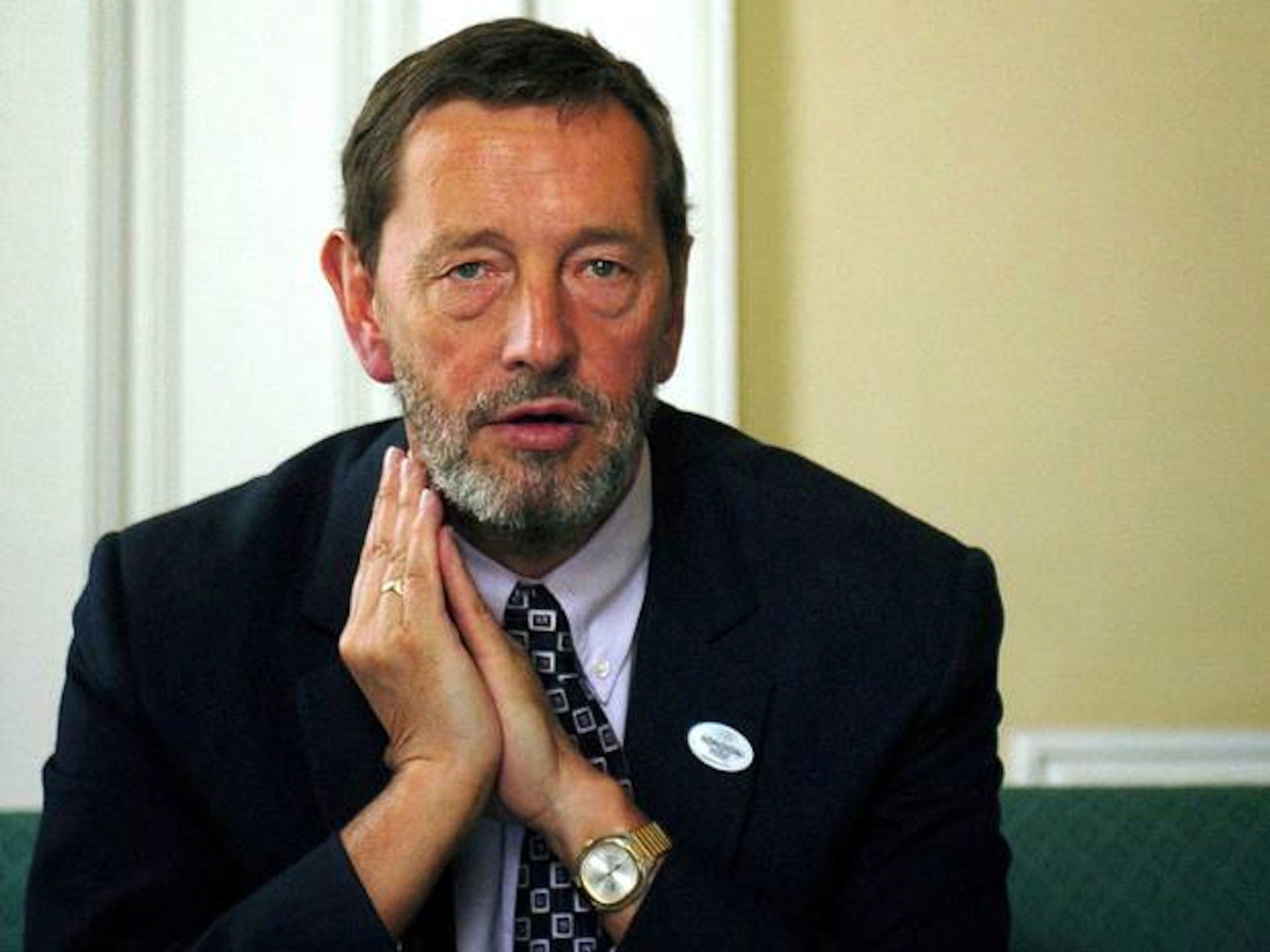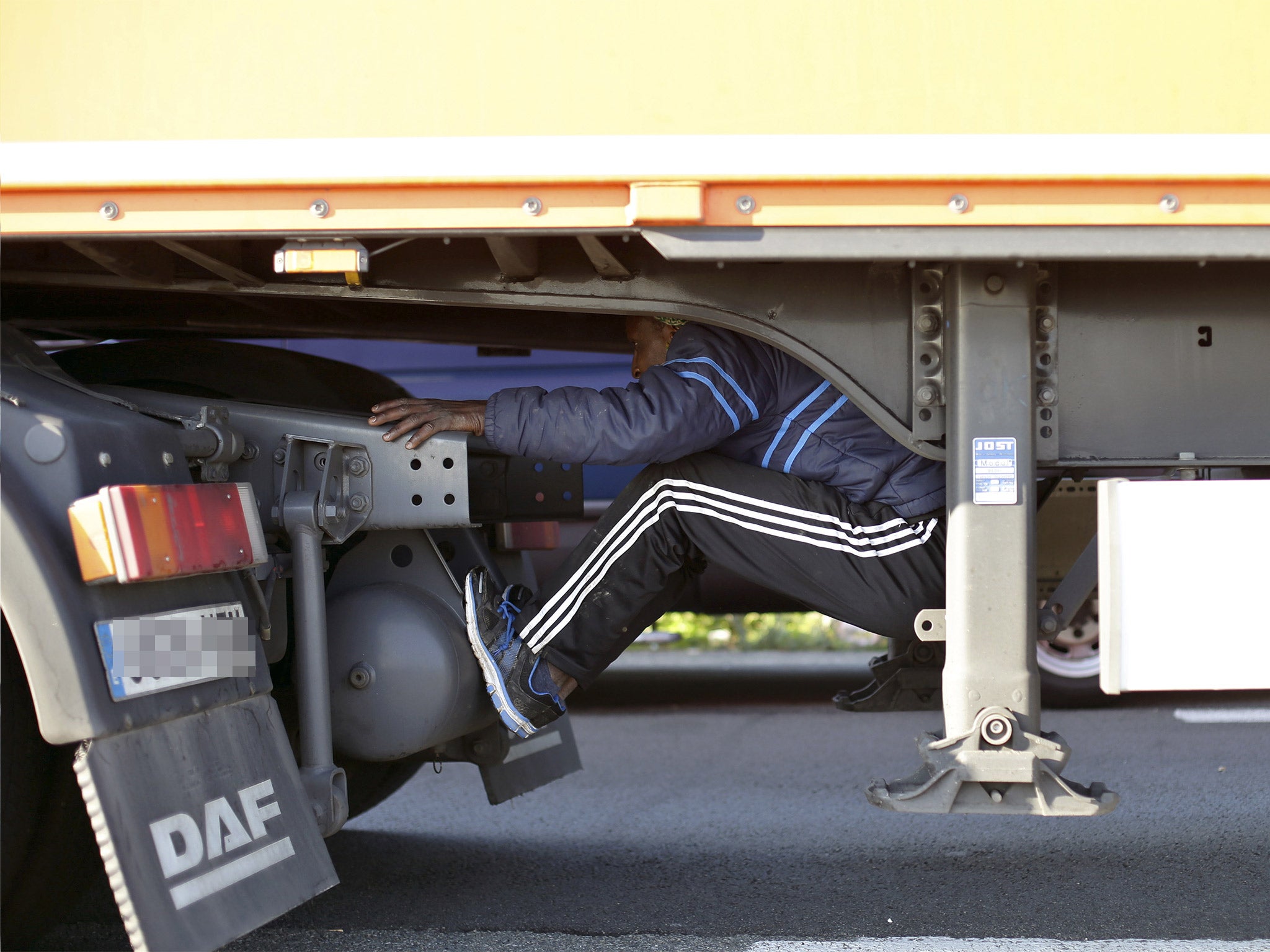Your support helps us to tell the story
From reproductive rights to climate change to Big Tech, The Independent is on the ground when the story is developing. Whether it's investigating the financials of Elon Musk's pro-Trump PAC or producing our latest documentary, 'The A Word', which shines a light on the American women fighting for reproductive rights, we know how important it is to parse out the facts from the messaging.
At such a critical moment in US history, we need reporters on the ground. Your donation allows us to keep sending journalists to speak to both sides of the story.
The Independent is trusted by Americans across the entire political spectrum. And unlike many other quality news outlets, we choose not to lock Americans out of our reporting and analysis with paywalls. We believe quality journalism should be available to everyone, paid for by those who can afford it.
Your support makes all the difference.The migration situation at Calais would become even worse if Britain left the European Union, a former home secretary has warned.
David Blunkett, who served as Home Secretary during the Sangatte refugee crisis, said the French would have no incentive to help Britain police what would become its border with the EU.
“I think we’d have to say if we weren’t in Europe why should the French in the EU cooperate with us in stopping people getting to Britain?” he told BBC Radio 4’s Today programme.
Mr Blunkett highlighted an existing deal previously struck with French authorities which he said made the policing of the border easier than it would otherwise be.
He said the fact was “one in the eye” for people who wanted to live in isolation.
The number of migrants camping at Calais has swelled from hundreds last year to thousands this year as pressures force many from the global south to migrant northwards to escape conflict.

Recent traffic disruption caused by a wildcat strike in the port town has given people trying to reach the UK new opportunities to stow away in lorries.
Britain is due to vote on whether to remain a member of the EU before the end of the 2017, as promised in the Conservative manifesto.
A recent poll by Ipsos MORI found that support for remaining the bloc was the
David Cameron last night described the situation as “totally unacceptable” while immigration minister James Brokenshire said it was one the whole continent had to address.
The prime minister will today kick off his talks with other EU leaders aimed at securing reforms to freedom of movement and benefit rules.
Mr Blunkett however warned that Britain would have to give some ground on the issue of immigration from outside the EU if the PM wanted to be successful in his wider EU negotiations.
“If David Cameron is going to succeed in his wider negotiations in his wider negotiations he’s raising today then he’s going to have to win friends,” he told the programme.
“If he’s going to win friends then he’s going to have to cooperate in some way on the wider issue of immigration coming from outside the EU.”
Greece, Italy, and Malta face a disproportionate burden in receiving migrants from north Africa because of their geographical position.
An attempt to change settlement treaties so that north European countries take a higher quota of migrants is being rejected by Britain. France, Germany, and most other EU countries, have said they will take migrants.
The UK has also taken in a minute number of Syrian refugees compared to other EU nations – fewer than 200 compared to Germany’s 30,000. The crisis in the Middle East is thought to be the source of many of those fleeing the global south.

Join our commenting forum
Join thought-provoking conversations, follow other Independent readers and see their replies
Comments